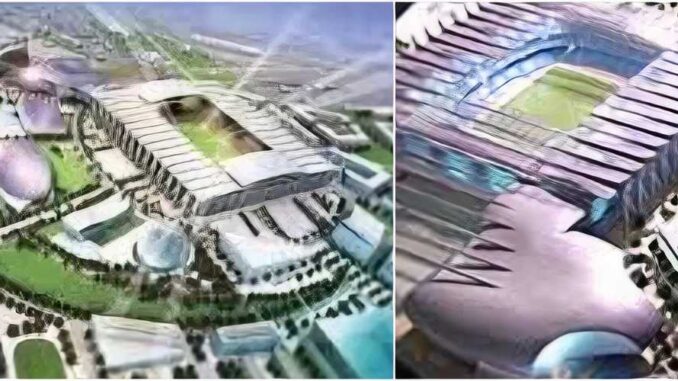
The Wild Premier League ‘Once-in-a-Lifetime’ Stadium Plan that Included a Super Casino
In the mid-2000s, British football saw a wave of ambitious stadium projects, but few were as audacious as the plans proposed by Birmingham City FC owners David Sullivan and David Gold. These plans, had they come to fruition, would have marked a historic turning point for the club and the city of Birmingham, blending football, entertainment, and gambling in a bold and controversial fashion. The project was coined as a “once-in-a-lifetime” opportunity to transform the sporting landscape of the Midlands.
The centerpiece of the plan was the construction of a 55,000-seater stadium, which would not only serve as the new home for Birmingham City but also become a multi-purpose venue for various events, rivaling some of the world’s most iconic arenas. What set this stadium apart from other proposals at the time was the inclusion of a super casino, a concept that was gaining traction in the UK during the early 2000s.
In addition to the super casino, the complex was to feature a massive retail and leisure hub, offering a range of entertainment options beyond just football. It would include restaurants, bars, and hotels, all designed to make the area a bustling epicenter for both sports fans and tourists. The vision was clear: this wasn’t just a football stadium—it was an entertainment destination.
At the heart of the plan was the proposed super casino, which promised to generate significant economic growth for the city. At the time, the UK government was considering relaxing gambling laws, and Birmingham City’s ownership sought to capitalize on the opportunity by creating one of the largest casinos in Europe. The casino would provide thousands of jobs, attract tourists, and inject much-needed revenue into the local economy.
However, the idea of combining football and gambling in such a public way was met with widespread controversy. Critics raised concerns about the social impact of a super casino, particularly in a city that already had pockets of economic hardship. They argued that while the project could bring in revenue, it might also exacerbate gambling addiction and social inequality.
Religious groups and community leaders voiced strong opposition, fearing the moral implications of intertwining a beloved sport with gambling on such a grand scale. Meanwhile, political battles ensued over the government’s stance on casinos, with some MPs supporting the economic benefits while others focused on the potential for social harm.
The plan seemed ambitious and potentially transformative, but it wasn’t without its hurdles. Local authorities were divided on whether Birmingham should be granted a super casino license, with strong competition from other cities like Manchester and Blackpool. The decision ultimately rested on a series of government inquiries and consultations, leaving Birmingham City FC in a prolonged state of limbo.
Financial backing for the stadium project also became an issue. Despite the bold vision, securing the necessary funding proved challenging, especially as public opinion remained divided. Investors were wary of the political uncertainty surrounding the super casino legislation, and as time went on, enthusiasm for the project began to wane.
By 2007, the dream of Birmingham City’s new stadium and super casino had all but disappeared. The government’s decision to award the only super casino license to Manchester, followed by a scaling back of casino development nationwide, effectively killed the project. Without the casino to act as the financial engine, the broader stadium plan lost its viability.
David Sullivan and David Gold, who had put so much faith in the project, were left disappointed. Their grand vision of a modern, multi-purpose venue was never realized, and Birmingham City FC continued to play at their traditional home, St. Andrew’s Stadium.
Though the project ultimately failed, it left a lasting impression on English football and the city of Birmingham. It was a reminder of how football clubs, especially those outside the Premier League elite, are often forced to think creatively about securing their financial future in an ever-competitive landscape. The proposed stadium would have been an architectural and cultural marvel, a sign of Birmingham’s ambition to step onto the global stage.
In hindsight, the “once-in-a-lifetime” stadium plan for Birmingham City remains a fascinating what-if in football history. It was a vision ahead of its time, blending sports and entertainment in ways that have since become more common, though not with the same scale of controversy. While the super casino plan never materialized, the audacity of the idea continues to resonate in discussions about how football clubs balance tradition, business, and innovation.
This wild vision of a Premier League stadium and super casino remains one of the most ambitious but ultimately unrealized projects in English football history. It stands as a reminder of the thin line between visionary ambition and overreaching fantasy, illustrating the challenges clubs face when trying to marry sport with broader commercial ventures.
Read more on;https://sportupdates.co.uk

Leave a Reply